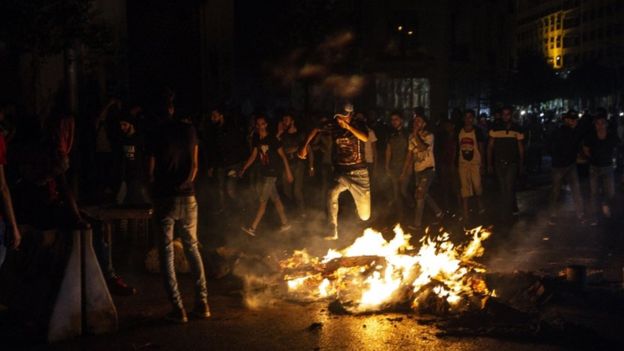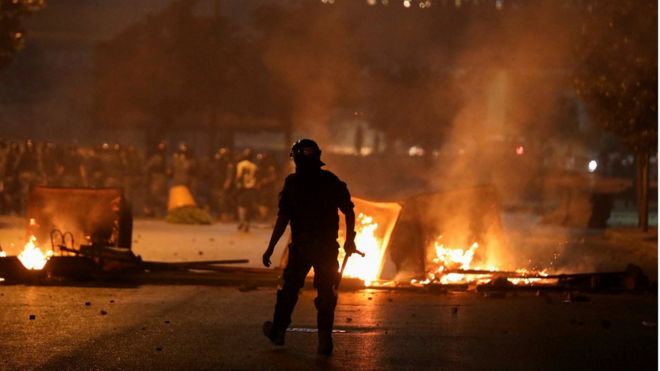Hundreds of people have protested in cities across Lebanon for a second night over the handling of the country’s economic crisis.
The Lebanese pound has fallen to record lows, having lost 70% of its value since October when protests began.
The financial crisis has worsened during the coronavirus pandemic.
Protesters in the capital, Beirut, and in the northern city of Tripoli, threw stones and fireworks at police who used tear gas and rubber bullets.
The pound’s decline appeared to halt on Friday after the government announced that the central bank would begin injecting more US dollars into the market in a bid to stop the pound’s freefall.
The move is set to begin on Monday.
It comes as the government prepares to hold talks with the International Monetary Fund (IMF) with the hope of securing billions of dollars in financing to help put the country’s economy back on track.
However any bailout is expected to involve painful economic reforms in a country built on a sectarian political system that is likely to face stiff resistance from the entrenched parties.
Many Lebanese citizens who rely on hard currency savings have fallen into poverty due to capital controls, as banks restrict dollar withdrawals. More than a third of the population is unemployed.

In Tripoli, protesters damaged the outside of several banks and shops, throwing petrol bombs at soldiers who responded with tear gas. Banks have been blamed for the country’s financial troubles.
One protester told AFP news agency: “I just want a job so I can live. We don’t believe all the measures taken by the government to improve the dollar exchange rate.”
Images from Beirut show protesters next to burning tires, blocking the road near the government palace.
The area had also been targeted during protests on Thursday night.


